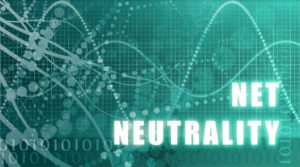AT&T and Time Warner executives this week appeared before a subcommittee of the Senate Judiciary Committee to respond to lawmakers’ concerns about their US$84 billion merger. Their testimony came at a time of high public skepticism of institutional power. Rival content and mobile providers applied further pressure with questions about the impact the deal would have on competition and pricing.
AT&T’s acquisition of Time Warner would serve to disrupt existing models of traditional cable provider dominance by letting consumers watch television whenever and wherever they wanted to, AT&T CEO Randall Stephenson told the Senate Subcommittee on Antitrust, Competition Policy and Consumer Rights.
The launch last month of DirecTV Now is one example of the kind of innovative programming options the Time Warner acquisition would provide, he said, and greater control over content would force traditional cable operators to offer more of the features and functionality that consumers actually want.
Cable Killer
“This transaction will help us break out of that box and reshape the competitive landscape,” Stephenson said at the hearing. “It will provide AT&T with a stable of major content from Time Warner that will serve as a launching pad to support a broad array of video offerings, including ones designed for mobile.”
The merger would help speed the deployment of 5G mobile, he added, noting that AT&T already was committed to that, but that the merger would help offset the costs of buildout and speed its pace.
However, the merger would lead to higher costs for other providers trying to access Time Warner programming, including HBO, CNN, Turner, and other major networks, argued Gene Kimmelman, CEO of Public Knowledge.
It also would give AT&T an unfair advantage due to its ability to provide zero rating, by giving its customers access to that content and not counting it against existing data plans.
A number of committee members, including Sens. Mike Lee, R-Utah, and Amy Klobuchar, D-Minn., raised concerns about the impact that would have on consumer choice and pricing, and the ability of independent content providers to compete with the combined AT&T and Time Warner behemoth.
“If this transaction is found to be anticompetitive, the need to compete with other companies is not a justification,” Klobuchar said. “The solution for less competition is not even less competition.”
Precedent Set
There was no new information presented at the hearing that suggested the merger would not be approved, said telecom analyst Jeff Kagan, but there likely would be conditions attached.
Other network content provider acquisitions — like the Comcast purchase of NBC and Verizon’s acquisitions of AOL and Yahoo — were approved, he noted, and AT&T and Time Warner similarly operate in two separate industries.
“Conditions may be centered around making sure the new company plays fair in the marketplace with competitors,” Kagan told the E-Commerce Times, which is “something they already said they would do.”
Prior to the election, the Trump campaign raised concerns about the deal, centering on the potential concentration of too much power in one company, noted Tim Mulligan, senior analyst at Midia Research.
Further, AT&T shareholders should be concerned about the premium being paid for Time Warner, he told the E-Commerce Times, as the assets “are being valued on pre-digital-distribution models of monetization.”
There is nothing about the merger that is in the public interest, argued Christopher Mitchell, director of community broadband networks at the Institute for Local Self-Reliance, although he noted that he hasn’t studied the issue closely since Wednesday’s hearing.
“When I speak to small cable companies and ISPs, they are deeply opposed to more consolidation,” he told the E-Commerce Times. “They fear their ability to compete effectively in a world of such giants with so much market power.”
Among the key concerns are the fact that customers who watch Time Warner content on the AT&T network will not be faced with the same bandwidth caps that other networks will charge, thus giving consumers another incentive to switch over to AT&T.





























































































Social Media
See all Social Media